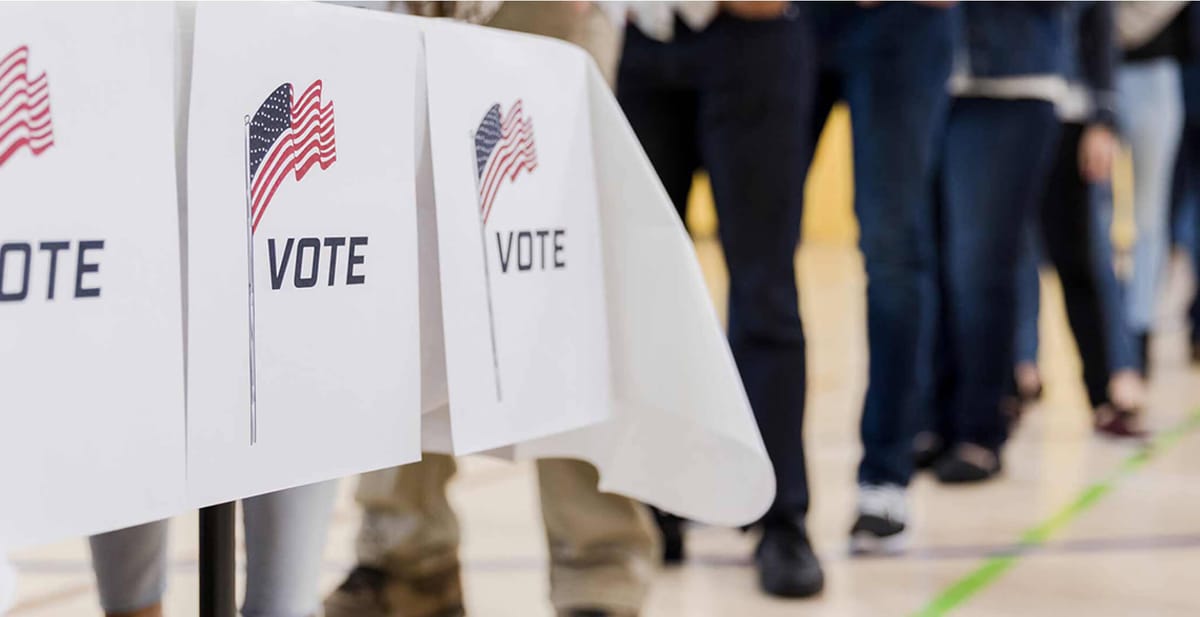
With over 40 national elections being held around the world, 2024 marks a historic year in international politics. With the recent advances in generative AI across audio, images and text, safeguarding the democratic process has never been more critical.
Amidst this backdrop, OpenAI has outlined how it plans to help play its part in protecting the integrity of the upcoming 2024 elections. Their approach targets three key areas: preventing abuse of AI tools, enhancing transparency around AI-generated content, and improving access to accurate voting information.
Known for its popular and state-of-the-art AI models like ChatGPT and DALL·E 3, OpenAI has acknowledges the double-edged sword that AI represents in the context of elections. On one hand, AI has the potential to simplify complex processes, improve state services, and assist in medical fields.
On the other, the rapid rise of powerful generative AI models, capable of creating convincing deepfakes and synthetic media, poses significant risks.
Misuse of these technologies can lead to scaled influence operations, deepfake misinformation, and even impersonation of political figures. Such deceptive practices could undermine the democratic process, mislead voters, and distort public discourse.
In a blog post, OpenAI said it aims to focus on abuse prevention, content transparency, and access to accurate voting information.
- Preventing Abuse: OpenAI is keenly aware of the potential misuse of its tools in the electoral context. As a preventive measure, the company conducts rigorous red teaming of new systems, solicits external feedback, and builds safety mitigations. Notably, DALL·E has been designed with guardrails to reject requests for generating images of real people, including political candidates. Furthermore, OpenAI’s Usage Policies for ChatGPT and its API are continuously refined to address potential misuses. Political campaigning and lobbying via these tools, as well as creating chatbots that impersonate real entities, are explicitly prohibited.
- Transparency in AI-Generated Content: Addressing concerns around the origins of AI-generated content, OpenAI will be implementing the Coalition for Content Provenance and Authenticity’s digital credentials for images created by DALL·E 3. This cryptographic approach encodes details about the image's provenance, enhancing the ability of voters to assess the authenticity of such content. Additionally, OpenAI is developing a provenance classifier to detect DALL·E-generated images, even when they are modified. This tool will soon be available to journalists, platforms, and researchers, bolstering efforts against misinformation.
- Access to Authoritative Voting Information: In collaboration with entities like the National Association of Secretaries of State, OpenAI is directing users to reliable voting information through ChatGPT. For instance, US users asking procedural election questions are directed to CanIVote.org. These efforts aim to empower voters with accurate information, essential for informed decision-making in democratic processes.
This year's election landscape is notably diverse, with countries like the US, India, and Russia participating. The stakes are high, with democracy itself seemingly on the ballot. The paradoxical increase in global freedom juxtaposed with the rise of authoritarianism underscores the delicacy of this democratic moment. Ensuring the integrity of elections in such a varied global context is a Herculean task, complicated further by the advent of sophisticated AI technologies.
OpenAI's proactive steps highlight the complex interplay between AI technology and democratic integrity. While their efforts are commendable, they also highlight the broader challenges and responsibilities that tech companies face in the age of AI. Collective action by all parties involved in elections (both public and private sector) is needed.
Given what is at stake, it is pretty insane that there are no official regulations or even guidance from most governments. Policy-makers must realize that their role goes beyond mere oversight; it should involve actively shaping the framework within which AI operates in the political arena.
Voters also have a key role to play through participation and media literacy. Exercising democratic rights while equipped to identify manipulation empowers citizens against those wishing to undermine the process.
As we navigate through a year of consequential elections, the role of AI in shaping, influencing, or protecting democracy will undoubtedly be under intense scrutiny. It is a balancing act of harnessing the power of AI for good while vigilantly guarding against its potential for harm. Either way, this year's interplay of AI and geopolitics will undoubtedly shape the future trajectory of global democratic processes, setting a precedent for how intelligent technologies and governance coalesce moving forward.

